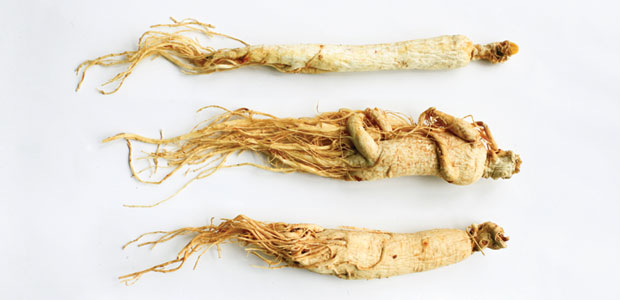Advertisement
Botanicals to Battle Stress
Adaptogens put up a good fight

Fight or flight. In the distant past, those used to be our only two options. Deal with the stress in front of us or run away from it.
We live quite differently now; those options don’t usually help us deal with the nature of stress in our complex lives. Fight? We can’t always solve the stressful issue in the heat of the moment. Flight? Seldom an option given the countless stresses lurking around the intricate facets of our lives.
Stress = health problems
What happens with all this stress in our lives? Our body’s response to stress involves a complex interaction between the nervous and endocrine systems during which the adrenal glands release extra cortisol into the body’s circulatory system. This can result in problems such as low immune function, mental dullness, fatigue and feelings of being overwhelmed.
The long-term effects of chronic stress, if left unchecked, can lead to serious health problems, including digestive disorders, mental illness, autoimmune diseases, chronic fatigue syndrome and cardiovascular diseases.
Adaptogens to the rescue
Stress is the main reason to consider adding an adaptogen to your supplement regimen. When a stressful situation arises, adaptogens don’t change the stress; rather, they help your body react to stress in a healthy way.
The term adaptogen was coined by a Russian scientist who was researching ways to improve productivity and physical abilities of members of the military, without the use of standard stimulants.
A plant is categorised as an adaptogen based on four general properties.
- It is nontoxic and harmless to the host.
- It has a general, nonspecific effect.
- It regulates or normalises organ and system function.
- It increases resistance to a variety of physical, chemical and biological stressors.
Current research shows that adaptogens affect the hypothalamic/pituitary/adrenal (HPA) axis. This means that adaptogens can regulate our response to different types of stress. Adaptogens affect many biochemical pathways which reregulate the overstressed body system. This is the reason for the broad range of benefits among different adaptogens.
Rhodiola (Rhodiola rosea)
An adaptogen used for its ability to ease anxiety, depression, fatigue and physical stress, rhodiola is a safe herb when taken at therapeutic doses. Rhodiola helps with mental acuity and physical well-being that have been depleted due to stressful conditions. Anxiety and mild depression often respond very well to moderate doses of the herb.
Rhodiola influences levels of serotonin, dopamine and norepinephrine in the brain hormone cascade. This may potentially allow proper balance of important hormones to be transported to receptors in the brain.
Several studies have shown the benefits of rhodiola on a variety of stress-related symptoms. For example, a study published in the February 2009 issue of the journal Planta Medica showed that rhodiola had an anti-fatigue effect and increased mental performance for patients suffering from stress-related fatigue.
People who take rhodiola in proper dosages often report improved sleep, ability to cope with everyday stresses and motivation; better moods and a reduction in mental fatigue.
Ashwagandha (Withania somnifera)
A great herb for any form of fatigue, weakness or overwork, ashwagandha is an adaptogen that is more calming than stimulating. The many benefits of ashwagandha include enhancement of mental, physical and immune functions; anti-inflammatory effects; increased energy and a calming effect that encourages proper sleep.
Ashwagandha is useful in regulating hormone-based organs such as the thyroid, testes and adrenal glands. It has a strong effect on the immune system by increasing white blood cell counts.
A 2009 randomised, controlled trial involving 75 participants demonstrated the effectiveness of ashwagandha on anxiety as well as concentration, fatigue, social functioning, vitality and overall quality of life.
Asian ginseng (Panax ginseng)
An adaptogen with the most stimulating effect, Asian ginseng is commonly used when there is a strong deficiency state such as depression, exhaustion and insomnia. All ginseng is not created equal: the powerful adaptogenic effects of Asian ginseng are due to its 38 different ginsenosides compared to only 19 found in American ginseng (Panax quinquefolius).
Many studies support the use of Asian ginseng to help maintain cognitive function and/or reduce mental fatigue in cases of mental stress. As well, it is used to help enhance physical capacity and performance in cases of physical stress. Other effects include lowering both blood sugar levels and cholesterol levels.
To maximise the beneficial effect of Asian ginseng, it is recommended that it be taken with a multivitamin/mineral complex.
Siberian ginseng (Eleutherococcus senticosus)
Sometimes marketed as eleuthero, this adaptogen has similar herbal properties to those of Panax ginseng, but is not genetically related to ginseng.
Siberian ginseng is useful when adrenal function is depleted—for those with easily identifiable signs of stress such as dark circles under the eyes, feelings of being overwhelmed, poor eating habits, poor sleep habits and lack of exercise. Regular use of Siberian ginseng helps with regulation of cortisol (stress hormone) levels, inflammation and immune function.
In a randomised, double-blind study of 45 young healthy volunteers, those who received Siberian ginseng had a 40 per cent reduction in stress response, leading the researchers to suggest that this adaptogen is helpful for stress adaptation.
Cautions
It is important to consult your health care practitioner before taking any of these helpful herbs.
Some adaptogens may interfere with medications or cause serious physiological effects in susceptible people.
Dosages will vary depending on the adaptogen, its intended use, its format (most adaptogens are found in tea, tincture or capsule format) and other medications being taken. a
Adaptogens at a glance
| Adaptogen | What it does |
| American ginseng (Panax quinquefolius) | less stimulating than Asian ginseng; suitable for regular use in younger people; useful for fatigue, dry cough, chronic stress, anxiety and depression |
| ashwagandha (Withania somnifera) | useful for fatigue, weakness, overwork and sleep; benefits the immune system; more calming than other adaptogens |
| Asian ginseng (Panax ginseng) | has a strong stimulating effect; used for depression, insomnia and exhaustion |
| astragalus (Astragalus membranaceus) | immune stimulant and strong anti-tumour agent; strong tonic herb used in traditional Chinese medicine |
| Siberian ginseng (Eleutherococcus senticosus) | enhances mental and physical well-being; helps to regulate blood pressure, cholesterol and blood sugar; benefits the immune system, reduces cortisol (stress hormone) levels and improves mental function; anti-fatigue and anti-stress effects |
| holy basil (Ocimum tenuiflorum) | can help lower blood sugar levels for type 2 diabetes; helps with immune function and proper digestion |
| licorice root (Glycyrrhiza glabra) | benefits the immune system and regulates cortisol levels (Patients with elevated blood pressure should avoid this herb.) |
| reishi (Ganoderma lucidum) | regulates the immune response for allergies or autoimmune diseases; controls asthma, cholesterol and blood pressure; antiviral and anti-inflammatory properties |
| rhodiola (Rhodiola rosea) | increases mental and physical well-being; helpful for anxiety and mild depression; improves memory and sleep; possible anti-cancer properties |
| schisandra (Schisandra chinensis) | helps with liver detoxification; normalises the nervous system and immune system; used for irritability, depression, memory loss and difficulty sleeping |





